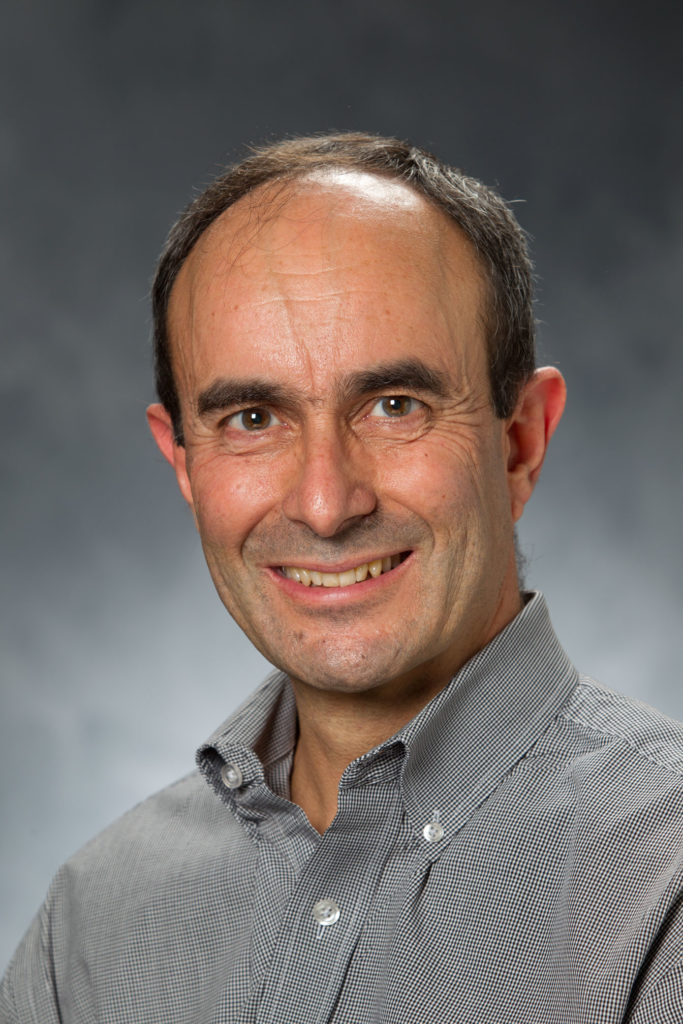Two UGA professors and the university’s First-Year Odyssey Seminar program have been honored by the Board of Regents of the University System of Georgia with awards that recognize teaching excellence.
• William Finlay, Meigs Professor of Sociology in the Franklin College of Arts and Sciences, has been awarded the Regents’ Teaching Excellence Award;
• Paula Lemons, associate professor of biochemistry and molecular biology in the Franklin College, is the recipient of the Regents’ Scholarship of Teaching and Learning Award; and
• The university’s First-Year Odyssey Seminar program has received the Regents’ Teaching Excellence Department/Program Award, giving UGA three of the seven statewide awards.
“The University of Georgia is an elite public university with distinguished faculty who are committed to excellence in teaching,” said UGA President Jere W. Morehead. “Taken together, these Regents’ Teaching Awards reveal the exceptional academic environment that defines the classrooms and laboratories across UGA’s campus. I am proud of the excellent work performed by Drs. Finlay and Lemons and the many individuals involved in the success of our First-Year Odyssey Seminar program.”
The board of regents, which oversees the state’s 31 public colleges and universities, created its Faculty/Department Awards program in 1996 and expanded it in 2000 to acknowledge professors’ records of superlative teaching and strong commitment to student learning. The Regents’ Teaching Excellence Award and the Regents’ Scholarship of Teaching and Learning Award are the highest honors bestowed on faculty at Georgia’s public colleges and universities.
“Our faculty are the cornerstone of the world-class learning environment that the University of Georgia provides, and I am delighted that Drs. Finlay, Lemons and the many faculty who help make the First-Year Odyssey Seminar program a success have been recognized for their outstanding work,” said Pamela Whitten, senior vice president for academic affairs and provost.
Finlay has received numerous accolades for his work. He has been awarded many of UGA’s highest honors for faculty, including the Sandy Beaver Award and the Lothar Tresp Outstanding Professor Award. Finlay also has been named a Senior Teaching Fellow by the Center for Teaching and Learning; a Research Fellow by the Willson Center for Humanities and Arts; and a Wye Faculty Fellow by the Aspen Institute.
Finlay, who joined UGA’s faculty in 1988 and served as department head from 2002 to 2014, teaches an Honors class in Introductory Sociology and a class on Sociology of Work, as well as a globalization course that is taught through study abroad. Most recently, he developed and currently co-directs the Stellenbosch study abroad program, which takes students to South Africa for intensive four-week service-learning projects.
Lemons is recognized nationally as a leader in science education. Selected as a National Academy of Sciences Education Fellow in the Life Sciences in 2010-2011, she has twice received UGA Innovative Instruction Faculty Grants and has used the funding to transform teaching methods in her department and to refine an online problem-solving tutorial for students called SOLVEIT.
Lemons’ research has garnered more than $1 million in grant
funding from federal and state agencies. Since joining UGA’s faculty in 2009, she has taught large-scale introductory courses to hundreds of students per year, including her current course in Introductory Biochemistry. She also teaches the graduate level course Teaching Biological Science and has mentored undergraduates, graduate students and postdoctoral fellows in biology education research.
Just three years after its introduction, UGA’s First-Year Odyssey Seminar program has reached more than 17,000 students. Intended to provide students in their first year of college an opportunity to experience the wealth of options at a large, land-grant university, the program allows students and professors to explore hundreds of topics in small 15- to 18-person classes. Through the university’s Center for Teaching and Learning, professors have received support and training on seminar instruction, including a focus on active learning, fostering discussion and engagement and implementing written assignments.
